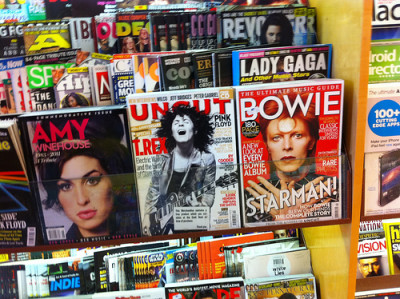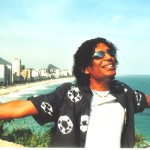Typically, you’re investing a considerable amount of money with a reputable music PR firm when you begin a publicity campaign. Knowing this, I try to put myself in my clients’ shoes and look at ways they can genuinely maximize the campaign to the fullest. This typically means additional engagement from the client to ensure we’re working in tandem to increase the chances of success throughout the campaign. After 13 years publicizing musicians, I’ve found there are three mistakes unknowingly made by bands that almost always contribute to the campaign’s demise.
1. Ineffectively using your social networks
I often have bands come to us who would like to see coverage in Rolling Stone or Stereogum throughout the campaign. The first thing I do is look at their social networks to see what type of following and engagement they currently have, only to find a Twitter account with 49 followers and tweets that are infrequent at best. Although social networks aren’t the only factors in receiving coverage, they do play a part for the higher profile outlets that want to see you have an engaged fanbase who will read what they post on your band.
When starting your PR campaign, you need to be ready to work your social networks just as hard as we’re working the media outlets. This doesn’t mean incessantly blasting your show dates or tweeting people to check out your band. It does mean getting to know your fans and the media outlets who cover you, and talking about them so they want to talk about you.
What you can do to enhance your campaign
Tweet at the very minimum of once or twice per day by retweeting, favoriting, and replying to your followers’ posts or updating them on what you’re working on. Obviously, the more engaged you are, the better results you’ll see. Don’t swing to the opposite side of the pendulum and overly engage so you burn out your followers and risk disengagement on their end.
2. Turning down coverage
Sometimes turning down coverage isn’t as obvious as telling your publicist you don’t want to do it (although that happens as well from time to time). It can be something like not following through on an interview request that was sent to you or showing up late (or not at all) for an in-studio performance. Perhaps you think an outlet is too small to be worthy of your time, but when you’re an emerging artist without a substantial following, you need to open up yourself to the opportunity for new fans. You have to build a foundation first before you can expect the big outlets to notice you. Expecting the big guys to jump on board without that foundation is the equivalent of being fresh out of college and expecting a company to hire you to be its next CEO.
What you can do to enhance your campaign
If you’re offered a phone or in-person interview, be prompt and available. If it’s an email interview, return the interview request by the specific deadline.
3. Emotionally disconnecting
At some point in the campaign, discouragement may set in, and you’ll feel like giving up. You’ve made this amazing record, and if people would just listen, they’ll immediately think your music is great. PR doesn’t work that way. It’s an insanely competitive, slow, and tedious process, and when one door won’t open, you have to knock on another one that will. The worst thing you can do for you campaign is check out when discouragement sets in, because that will only impede the process further. I learned very early on in my career as a music publicist to focus my energy on the coverage and positive responses we do receive if I want to have a chance to increase more coverage.
What you can do to enhance your campaign
Stay engaged, and when discouragement does set in, talk to your publicist to see if you can collaboratively come up with new ideas to move your campaign forward.
The moral of the story is that you must remain involved, consistent, and open so you can give your investment and music the opportunity and attention it deserves.
Article provided by-Janelle Rogers began her 20 year music industry career working for SXSW Music and Media Conference. She then went on to work for BMG Distribution for 10 years in the alternative music department where she championed bands like Kings of Leon, Ray LaMontagne, The Strokes, Belle & Sebastian and The White Stripes. In 2002 she launched Green Light Go Music PR as a haven of honesty, integrity and passion for underrepresented artists and labels. She has since been named Mentor of the Year by the University of Michigan, Dearborn, appeared as a panelist at NXNE and been an official SXSW mentor.





